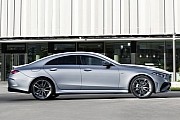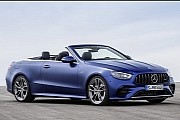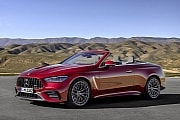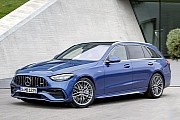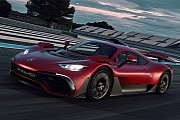history
As one of the oldest carmakers on the planet, Mercedes-Benz is presently successfully selling its cars on most segments, from vans to passenger cars. Of particular importance to the Germans is the performance car segment, which in their case translates to Mercedes-AMG.
The current standalone performance division of Mercedes was born way back in 1967 as AMG Motorenbau und Entwicklungsgesellschaft. This translates into AMG Engine Production and Development, while AMG is an acronym for Aufrecht, Melcher and Großaspach, the names of the two founders, Hans Werner Aufrecht and Erhard Melcher (both at one point Mercedes-Benz engineers), and the former’s place of birth.
Back then, AMG was a private engineering firm in the business of making performance monsters out of production Mercedes cars, usually with the goal of having them take part in racing. They were quite good at it, and soon started expanding their expertise to road cars as well. They started out and continued to make, for a long time, variants of cars like the S-Class (W116, W126), E-Class (W123, W124), and the C-Class (W201).
The group’s interest in racing was however it’s main purpose for being. Their track exploits began with a variant of the Mercedes-Benz 300SEL 6.3 nicknamed the Red Sow (or Red Pig). The car was seen on the tracks at the 1971 Spa 24 Hours and soon of the European Touring Car Championship.
Later, towards the end of the 1980s, AMG began helping Benz with its DTM efforts, and produced a variant of the W201.
As it usually happens when someone is good at something, Mercedes-Benz took notice of what its former employees were doing, and wasted no time in getting involved at a corporate level. For their efforts in helping the behemoth, the AMG crew were rewarded with official partner status.
Things evolved even further, and in 1990 the two companies (and Chrysler, who back then was heavily tied with the Germans) formalized their partnership with AMG. Soon, the newcomers were being allowed to sell their own products in Benz’s locations, marking the beginning of a very successful partnership, one that endures to this day with at times incredible results.
Over the past 30 years, AMG has steadily grown to become synonym with high-performance German engineering. Its product portfolio covers everything from the A-Class to the more recent SUVs, and every single one of these vehicles seems to be selling like hotcakes all over the world. There are now over 20 distinct AMG models that come not only as enhancements of existing Benzes, but in some cases models that are not to be found in the Benz portfolio, like the GT 4-Door Coupé.
Separately from its relationship with Benz, AMG is also a reliable partner for Pagani and Aston Martin, whom it helped over the years with a host of engineering solutions.
Just like these two niche automakers, AMG’s production approach differs greatly from the production lines from where regular Benz cars come from. At AMG, almost all engines that go into cars are built from start to finish by a single employee, with assembly taking place in Affalterbach, the location where the company moved to in 1976.
Aside from the difference in power and performance and offered by AMG engines, the Mercedes cars the group tweaks are different from the stock ones in terms of trim as well. Most of the visual changes made are not only designed to set them apart from the other three-pointed star machines, but are also meant to help handle the increased power of the models.
Separately, and true to its original purpose, AMG became a household name in Formula 1. It happened in 2011, when Mercedes GP Petronas changed names to Mercedes-AMG Petronas Motorsport. Under this name, and using a wealth of AMG-tweaked hardware, the team has become the undisputed ruler of one of the world’s most famous racing series. For the past six years (2014, 2015, 2016, 2017, 2018, and 2019) not even Ferrari was capable of stealing the win from the Germans.
Competing heavily for an apparently ever-growing segment with BMW’s M, AMG remains one of the most highly-regarded names in this segment in particular and in the industry in general.
expand



















